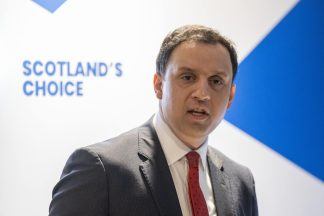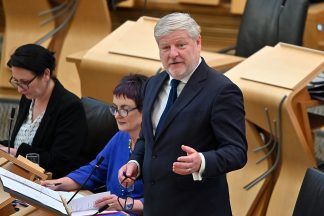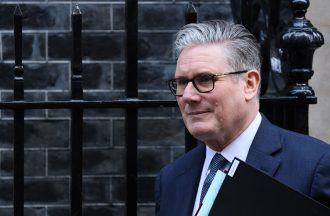An inquiry by MSPs has found a “troubling picture” for youth mental health services.
MSPs on Holyrood’s Public Petitions Committee raised concerns about the evidence of young people who reported they had felt cast aside by GPs despite obvious signs of distress and in some cases self-harm.
The inquiry was launched after a petition by Annette McKenzie called for consultation and consent from parents or guardians of minors before prescribing medication to treat mental ill-health.
Mrs McKenzie created the petition after her daughter, Britney, died from an overdose of prescription medication.
While there was limited support for Mrs McKenzie’s request, MSPs said the inquiry raised other concerns.
It found young people and those supporting them are often unaware of the availability of initial support services.
This often results in the young person being referred to Child and Adolescent Mental Health Services (CAMHS), the inquiry found, only to be rejected for not meeting NHS board criteria.
The committee has made a number of recommendations to the Scottish Government to support young people’s mental health, including the creation of local “inventories” of mental health services in each area to ensure there is a clear resource list.
It also recommends the provision of school counsellors is reviewed to ensure their services are delivered more effectively.
Teachers should be empowered to identify and support young people with their mental health, the committee said, including integrating mental health training into teacher training.
Committee convener Johann Lamont said: “The committee wants to recognise the work of Annette McKenzie, who has shown such courage in highlighting the concerns in her petition.
“She has done so in circumstances which no parent should ever have to face.
“During the committee’s work on the inquiry, we have found a troubling picture.
“Though anyone can experience low mood, anxiety, or both, at some point in their life, when it comes to seeking support, young people often find themselves facing a cluttered and even confusing landscape, which too frequently does not provide the support needed.”
She added: “While the committee welcomes those measures announced by the Scottish Government to improve the situation, these are not enough to address the substantial gap that remains in the provision of mental health services, or to improve understanding of the help available.
“Therefore, we believe that the Government should work urgently with authorities to ensure that not only is there sufficient provision available at the local level, but that this is clearly communicated and easily accessible, both for young people and those they are turning to for help.
“The need for this work will only be increased by Covid-19, and its consequent impact on young people’s mental health.”
A Scottish Government spokesman said: “We do not want any child or young person to wait longer than they should for mental health treatment which is why we wrote to health boards earlier this month to emphasise that these services should be a clinical priority.
“As part of this correspondence we have asked health boards set out plans for recovery of mental health services in their Covid-19 mobilisation plans and our guidance on continuity in learning makes it clear that specific attention to pupils’ mental health and wellbeing will need to be considered when schools return.
“In March we announced £2m of new funding to local authorities to support the planning and development of new community mental health and wellbeing services for five to 25-year-olds, their families and carers.
“We have also given £105,000 to support Young Scot to create Aye Feel, an enhanced digital mental wellbeing resource for children and young people, as part of a £1m wider package of investment for mental health services.
“We have also confirmed an investment of more than £1m to expand the Distress Brief Intervention (DBI) programme from the four existing pilots in Lanarkshire, Borders, Aberdeen and Inverness, across the whole of Scotland, to support young people presenting to frontline services in distress during these challenging times.
“We know lockdown is putting a strain on the mental health of many children and young people, which is why we are working closely with health boards to maintain the integrity and quality of services across Scotland during the coronavirus pandemic and, looking forward, to recovery.”
Follow STV News on WhatsApp
Scan the QR code on your mobile device for all the latest news from around the country




























